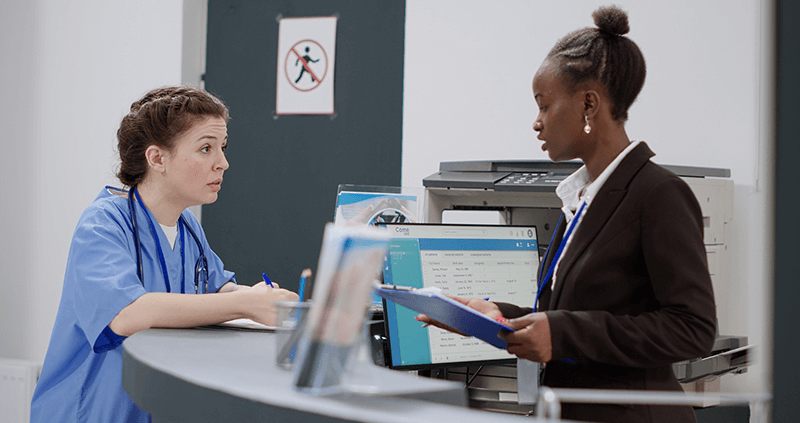What Every Healthcare Organization Should Know About MPJE Licensing Standards

Healthcare organizations depend on licensed pharmacists to deliver safe, legal, and consistent care. Every license proves that a professional understands the laws, ethics, and responsibilities tied to patient health. Gaps in licensing standards create real risks. Mistakes can cost money, trust, and even lives.
Understanding the Multistate Pharmacy Jurisprudence Examination (MPJE) protects more than compliance records. It strengthens the foundation of pharmacy services and shields organizations from legal trouble. It helps healthcare leaders spot problems early, fix gaps before they grow, and keep standards high. When pharmacy law becomes part of daily operations, the entire healthcare system benefits from stronger, safer care.
Understanding the Basics: What the MPJE Evaluates
The Multistate Pharmacy Jurisprudence Examination (MPJE) is a pharmacy law exam required for pharmacist licensure in most U.S. states and jurisdictions. It is designed to assess how well candidates understand the legal responsibilities tied to pharmacy practice. Only those who have completed an accredited pharmacy program and passed the NAPLEX are eligible to take it.
Each version of the MPJE is state-specific. It covers federal drug laws, state pharmacy acts, and the rules set by local boards of pharmacy. The exam is computer-based and includes scenario-driven questions that test how a candidate would respond in legally sensitive situations.
According to the National Association of Boards of Pharmacy (NABP), the first-time pass rate for the Multistate Pharmacy Jurisprudence Examination (MPJE) in 2024 was approximately 78.4% for graduates from ACPE-accredited programs.
Pharmacists preparing for the exam need more than classroom knowledge. They must actively engage with tools that help them understand both state-specific and federal pharmacy laws. Access to quality resources plays a big role in whether they pass on the first try. One of the most effective tools candidates rely on is a reliable MPJE study guide, which helps reinforce legal knowledge in practical, test-ready ways. When organizations understand what goes into that preparation, they can better support hiring decisions and compliance from the start.
Navigating State-Specific MPJE Standards: Challenges for Multi-State Organizations
MPJE content is state-specific. Each version tests laws and regulations unique to the state in which the pharmacist seeks licensure. What qualifies as legal in one state might violate board rules in another. For healthcare organizations with a regional or national footprint, this creates a compliance challenge.
You can’t assume one pharmacist’s license fits every location. If a facility operates in multiple states, pharmacy staff must hold the correct license for each jurisdiction where they work. That includes telepharmacy services, temporary assignments, and remote support.
Failing to account for these differences can lead to legal exposure. It may also delay services or force emergency staffing changes. Organizations must maintain a clear map of where each pharmacist is licensed and which MPJE versions they’ve passed. This reduces risk and makes audits easier to manage.
State laws shift often. Boards update rules to reflect changes in drug schedules, controlled substances management, and practice authority. Staying current isn’t optional. It’s the only way to remain compliant while delivering care across state lines.
Promoting Ongoing Compliance Through Education and Policy Updates
Regulations change. Boards update rules in response to new legislation, controlled substances classification, or emerging risks. Healthcare organizations must be ready to act. Compliance depends on how quickly internal systems can absorb and reflect those updates.
Start by reviewing your policies regularly. Build a schedule for policy audits tied to state board announcements and regulatory changes. This keeps outdated procedures from slipping into daily operations.
Work with legal advisors familiar with pharmacy law. Their input ensures your updates match current legal language and meet state requirements. Don’t rely on assumptions—get clarity before implementing changes.
Keep documentation accessible. Staff should know where to find the latest policy versions and how to request clarification if needed. A policy is only effective if it’s visible and understood.
Update communication channels. If a change occurs, make sure every pharmacist knows what it means in practice. Clear internal messaging reduces confusion and reinforces accountability.
Common Mistakes Healthcare Organizations Must Avoid
MPJE-related compliance issues don’t always come from neglect. They often result from unclear processes or gaps in internal communication. When these mistakes go unaddressed, they place your organization at risk for legal trouble and regulatory penalties.
Here are some issues that frequently get overlooked:
- Forgetting to Track License Renewal Timelines: Without reminders or central oversight, pharmacists may continue working after their licenses expire.
- Relying on Verbal Confirmation of Licensure: Trusting that a pharmacist is licensed without documentation leads to false assumptions and liability.
- Overlooking Disciplinary History: Hiring decisions made without reviewing past license violations can bring problems into the workplace.
- Failing to Monitor Changes in Pharmacy Law: Outdated policies cause staff to act on incorrect or expired procedures.
- Assuming Compliance Training is a One-time Task: MPJE standards evolve. Training must continue well beyond the onboarding phase.
Implementing Best Practices for MPJE Licensing Compliance
Compliance improves when healthcare organizations treat it as a shared, ongoing responsibility. A scattered or informal approach leads to missed deadlines, poor documentation, and unnecessary legal exposure. Building structure into your process ensures every pharmacist is licensed correctly and that those records stay accurate over time.
Here are practical ways to maintain strong MPJE compliance:
- Centralize License Tracking: Use a digital system to monitor licensure status, renewal dates, and the state each pharmacist is authorized to practice in.
- Automate Renewal Reminders: Set alerts for upcoming deadlines to prevent lapses in licensure.
- Standardize the Onboarding Checklist: Verify MPJE jurisdiction, licensure documentation, and disciplinary history for every pharmacist before they begin work.
- Assign a Compliance Point Person: Designate someone to monitor state board updates and lead responses when laws change.
- Maintain a Shared Legal Resource Hub: Give pharmacy staff access to current laws, board announcements, and licensing requirements in one central location.
- Conduct Internal Audits Regularly: Review files, verify records, and address inconsistencies before external regulators do.
Wrapping Up
MPJE licensing standards define the boundaries of legal and ethical pharmacy practice. Every healthcare organization must treat them as essential to safe and lawful operations. This is not a compliance checkbox. It is a structural responsibility. When leadership prioritizes licensing integrity, they protect patients, reduce risk, and strengthen their credibility. The stakes are high, and the organizations that lead with clarity will be the ones that stand secure.









Leave a Reply
Want to join the discussion?Feel free to contribute!